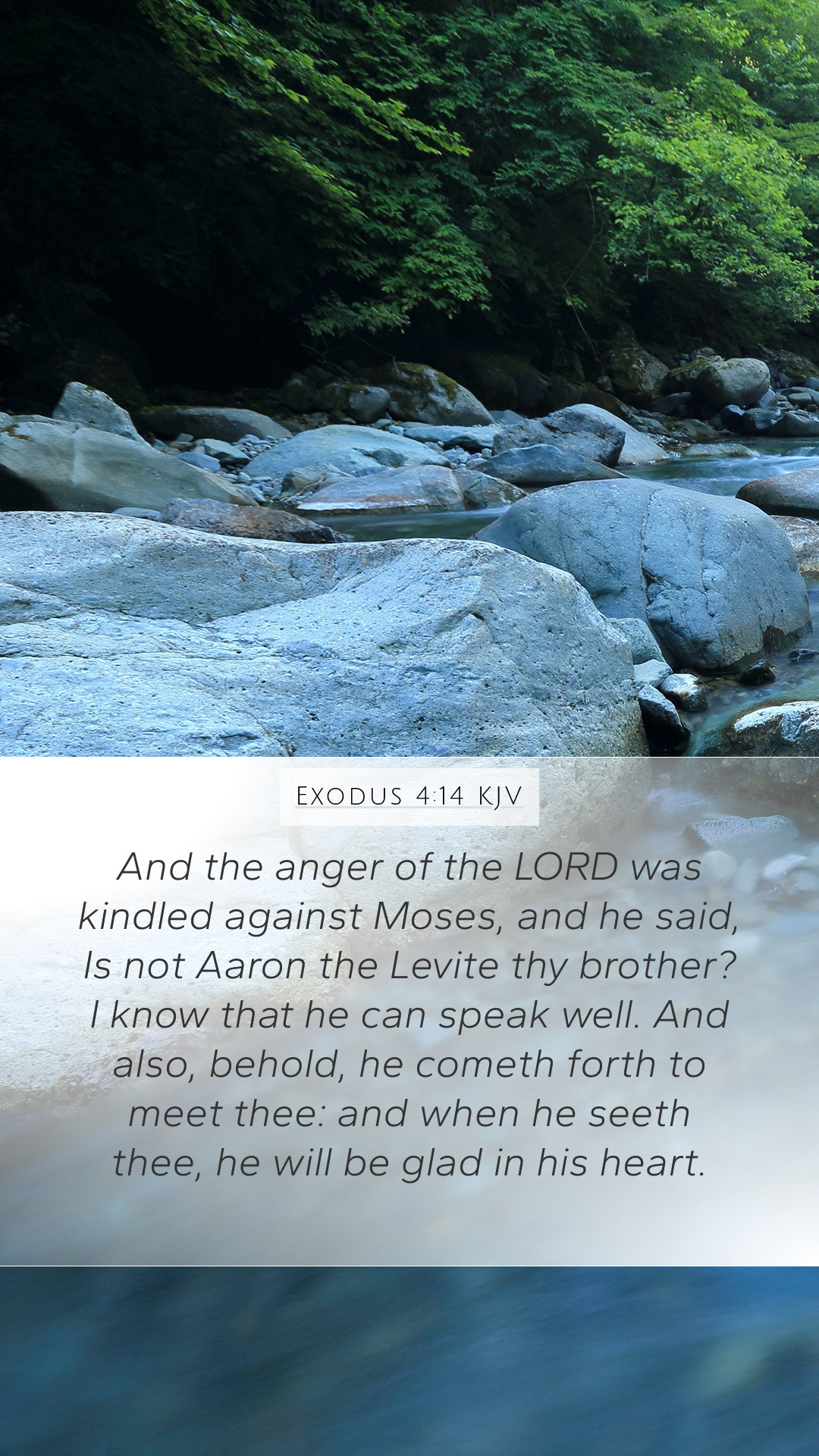Exodus 4:14 - Understanding the Significance
Exodus 4:14 states, "And the anger of the Lord was kindled against Moses, and He said, 'Is not Aaron the Levite thy brother? I know that he can speak well. And also, behold, he cometh forth to meet thee: and when he seeth thee, he will be glad in his heart.' This verse marks a pivotal moment in the dialogue between God and Moses, providing deep insights into God's plans and human reluctance.
Verse Context
In this chapter, God commissions Moses to lead the Israelites out of Egyptian bondage. Despite God's reassurances, Moses expresses doubt about his speaking abilities, prompting God's response to mention Aaron.
Insights from Public Domain Commentaries
-
Matthew Henry's Commentary:
Henry emphasizes that God's anger is a natural response to Moses' repeated hesitance. He suggests that God's choice of Aaron as Moses' spokesperson illustrates divine understanding of human limitations. This suggests that God equips those He calls, despite their perceived inadequacies.
-
Albert Barnes' Notes:
Barnes focuses on the significance of Aaron's role as a helper to Moses. He notes that Aaron's ability to speak well is a divine provision for Moses’ ministry, further highlighting that God often supplies support in our weaknesses. Barnes concludes that God's anger was not about punishment, but rather an indication of the urgency of the mission.
-
Adam Clarke's Commentary:
Clarke elaborates on the nature of God’s anger, interpreting it as a reflection of God’s passion for His mission and people. He points out that God’s decision to send Aaron alongside Moses reflects a compassionate response to Moses' fears, reinforcing the idea that God meets us where we are in our journey of faith.
Key Themes
-
Divine Patience:
This verse showcases God's patience with human frailty. Despite Moses' reluctance, God continues to affirm His choice, demonstrating His commitment to use flawed individuals for His purposes.
-
Support and Partnership:
The mention of Aaron emphasizes the importance of companionship and support in fulfilling God’s call. This resonates with the biblical principle that we are not meant to serve in isolation, but rather in community.
-
God's Sovereignty:
God’s decision to accommodate Moses’ concerns reflects His sovereignty and intimate understanding of human nature, reminding us that He is in control, even when we feel inadequate.
Applications for Today
-
Overcoming Doubts:
Just as Moses struggled with self-doubt, modern believers can look to this verse for encouragement when facing personal insecurities. God can use our weaknesses for His glory.
-
Recognizing Helpers:
This verse prompts believers to recognize and appreciate the support they receive from others in their faith journey, symbolizing the importance of teamwork in ministry and life.
-
God’s Provision:
The assurance that God will provide what we need—be it guidance, strength, or companionship—encourages believers to trust in His ongoing provision in every situation.
Cross References
- Exodus 3:11-12: This passage introduces Moses' hesitance regarding his calling.
- Exodus 6:28-30: Further context on God's reassurance to Moses regarding His plans.
- 1 Corinthians 1:26-29: A New Testament reflection on how God uses the weak and foolish things of the world.
Conclusion
Exodus 4:14 is a rich passage that highlights the dynamic between divine calling and human reluctance. Its themes of God’s patience, the importance of support, and trust in divine provision provide a framework for understanding how scripture applies to our lives today. As believers engage in Bible study groups or online Bible study, reflecting on such verses can lead to deeper insights and applications for personal growth and faith.


